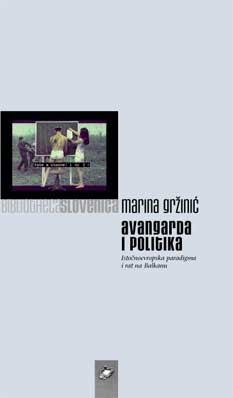
Avangarda i politika
One always searches for some symbolic point from which one can claim that something ended and something else began, even though there are no beginnings and no endings.
More...We kindly inform you that, as long as the subject affiliation of our 300.000+ articles is in progress, you might get unsufficient or no results on your third level or second level search. In this case, please broaden your search criteria.

One always searches for some symbolic point from which one can claim that something ended and something else began, even though there are no beginnings and no endings.
More...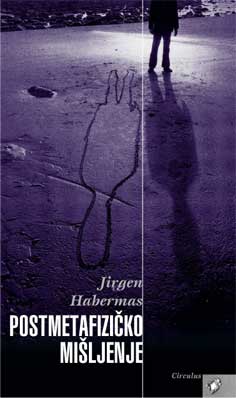
In this collection of essays, Habermas takes up and pursues the line of analysis begun in The Philosophical Discourse of Modernity. He begins by outlining the sources and central themes of twentieth century philosophy, and the range of current debates. He then examines a number of key contributions to these debates, from the pragmatic philosophies of Mead, Peirce and Rorty to the poststructuralism of Foucault. Like most contemporary thinkers, Habermas is critical of the Western metaphysical tradition and its exaggerated conception of reason. In opposition to the radical critics of Western philosophy, Habermas argues that postmetaphysical thinking can remain critical only if it preserves the idea of reason while stripping it of its metaphysical trappings.
More...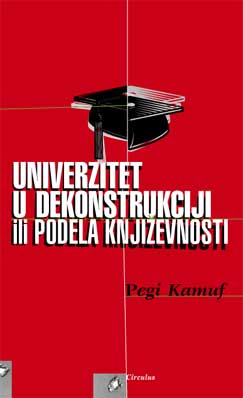
The inclusion of literary study is a distinctive trait of the modern, scientific university. But this legitimation of a ¨division of literature¨ has been from the beginning a tenuous, ambivalent, and divisive affair. Why and what effect? These questions guide Peggy Kamuf's analysis of the complex history of literary study in the modern university and orient her critical reading of developments from the French Revolution through the nineteenth century and beyond in Europe. She then turns to one of the most troubling works in the American literary canon – Melville's The Confindence- Men – to show academic literary history has avoided confronting the implications of works in which meaning is never solely confined within a past. By enganging a future readership to which it applies for credit, Kamuf argues, literature cannot serve as a stable object of study. It locates, rather, a site of ¨the university in deconstruction¨.
More...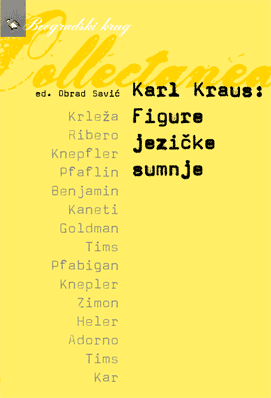
Džon Raskin kaže da je jezik pisca jasan kada ovaj govori »saosećajno i sa željom da bude razumljiv«. Ovaj iskaz, koji je Karl Kraus citirao (u nemačkom prevodu) u svom časopisu Die Fackel, potiče iz jednog Raskinovog predavanja; ovo izgleda relativno neosporno. Pa ipak, ta »želja da se bude razumljiv« sama po sebi pretpostavlja postojanje zajedničkog polazišta – postojanje jezika poznatog i piscu i čitaocu (na taj način što autorova »saosećajnost« pretpostavlja njegovu spremnost da deli čitaočeva interesovanja i preokupacije).
More...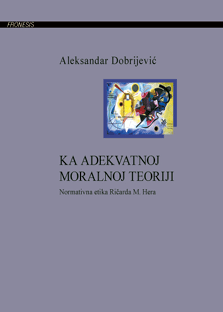
According to Hare’s device, an adequate association of two mutually akin but independent theoretical disciplines – metaethics (universal prescriptivism) and normative ethics (utilitarianism) – enables the formation of the complete and coherent moral system. The main subject of this book is reception and critical analysis of Hare’s constructivism; but much more attention is dedicated to the substantive aspect of his doctrine, where idea of all-encompassing ethical theory is fully developed and crystallized. In Hare’s opinion, the fact that something like this is possible is approved by detailed inquiry of the structure of so-called “moral thinking”, which, although in theory divided into three plateaus or levels, in practice can operate as unique faculty. The first part of the book considers Hare’s metaethical doctrine, i.e. metaethical level of moral thinking. This part especially analyzes semantic and logical properties of the moral words and judgments, which Hare grasps and marks off as elements that constitute specific ethical theory in narrow sense under the name of “universal prescriptivism”. Thence, it contrasts the theory with the most prominent types of rival metaethical conceptions; this is a way of showing its supremacy over them. The second part analyzes Hare’s multiple ways of connecting his metaethical with his normative doctrine, which is in formal sense determined as “Kantian utilitarianism”, and in substantive sense as “preference-utilitarianism”. Critical references to both dimensions of utilitarian doctrine aim at indication on scopes and limits of Hare’s ambitious redefinition of the doctrine. In addition, this part accessorily affirms a proposal about certain more rigorous terminological delimitation of different kinds of normativity. Further on it discusses about so-called “necessary ingredients” of moral reasoning, where special attention is being paid on element of “sympathetic imagination”, which Hare grasps in his developed theory not only as a normative demand but also as a logical thesis. Finally, it considers kinds of preferences that can or cannot be recognized (with help of established set of criteria) as morally relevant. The third (the last) part displays so-called “two-level theory” of normative moral thinking (“intuitive” level and “critical” level), including goals that are intended by its establishing. Given Hare’s holism, the metaethical level, considered as fundamental or the “third” level, has notable effect on process of normative reasoning, especially if it is taken as one of the determinant of the critical moral thinking. Upon examining the (utilitarian) character of the theory, its plausibility is verified in the light of its application to one specific theoretical realm – the realm of philosophy of moral upbringing and education.
More...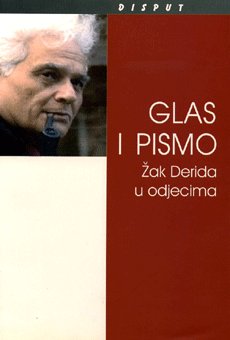
Not long after the death of Jacques Derrida, the Institute for Philosophy and Social Theory and the National Library of Serbia organized a colloquium dedicated to the work and theoretical influences of one of the most important thinkers of the last century. The texts collected in the collection are focused on several topics (literature, art, philosophy and politics) and bring different receptions, readings, interpretations of Derrida's works. One of the goals of the collection is to examine the impact of Derrida's philosophy on these regions.
More...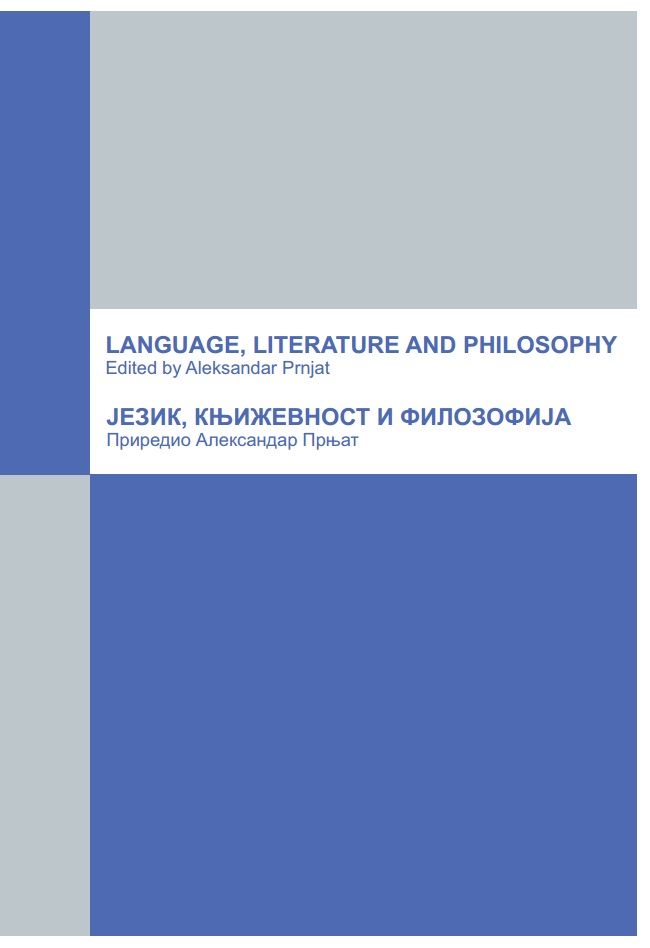
Detective fiction depends on the examination of clues and the drawing of logical conclusions, a process that involves the detective and the reader in a game in which the reader strives to solve the crime before the detective does. The language of detective novels can be neither arbitrary nor contradictory because the evidence must be comprehensible through a process of ratiocination, i.e. the belief that the mind can, given sufficient time, understand everything. My paper examines two novels by Jacqueline Winspear: the first, Maisie Dobbs (2005), and the eleventh and most recent addition to the Maisie Dobbs series, A Dangerous Place (2015). The paper demonstrates how Dobbs’s skills as a private investigator are honed by experience: the murder case investigated in A Dangerous Place is particularly complex not only because of the physical situation in which Dobbs finds herself but also because of the unusually complex nature of the evidence.
More...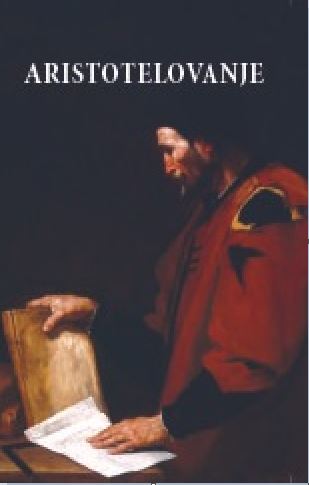
The paper presents the basic elements of rhetoric as a pragmatic skill that was theoretically established by Aristotle’s rhetoric. The author analyzes the possibilities of the art of speech in relation to our modern times, particularly addressing the basic techniques of rhetoric and the fundamental stylistic linguistic figures.
More...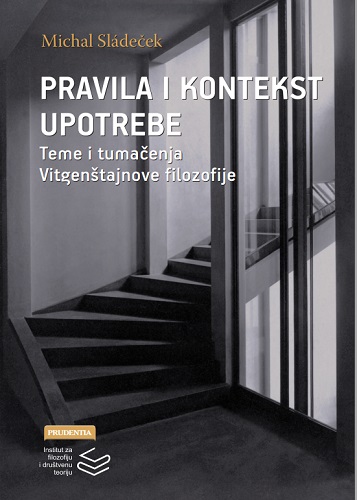
This book consists of eight chapters, which encompass various themes, such as the nature of philosophical thinking, methodology of social sciences, problems in political philosophy, character of the human nature and rationality, problems of philosophy of mind and question of rule-following in philosophy of language, all conjoined by Wittgenstein’s late philosophy.
More...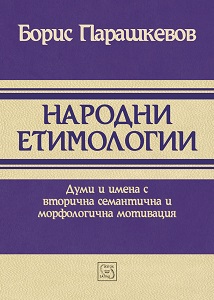
Etymology is the most popular area of linguistics, particularly its lexicology. This is the study of the history of words, their origins, and how their forms and meanings have changed over time. By extension, the term "the etymology (of the word)" means the origin of the particular word. In a simpler sense today, we associate the term Etymology with clarifying the question of where a foreign or unknown word comes from. "Folk Etymology" represents the naive attempt to make sense of a vague word. It is a change in a word or phrase resulting from the replacement of an unfamiliar form by a more common one. This is sometimes called pseudo-etymology, popular etymology, or analogical reformation. The form or the meaning of an archaic, foreign, or otherwise unfamiliar word is reanalyzed so as to resemble more familiar words or morphemes. "Folk Etymology" (subtitled "Words and Names with Secondary Semantic and Morphological Motivation") traces the true origin of copious words, indicates which use is legitimate and what kind of deviation is involved from the original form, as well as its acceptability and its avoidance from loanwords when used in their natural environment beyond the Bulgarian language. The book dedicates itself to the 120th anniversary of the publication of the monograph "Contribution to the Bulgarian Vernacular Etymology" by Prof. Ivan Shishmanov (1862-1928).
More...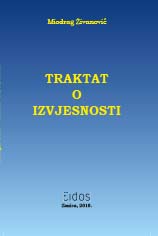
Po svemu sudeći, forma traktata zahtijeva, odmah na početku, jedan kratak komentar ili objašnjenje, koje se tiče tzv. unutrašnje arhitekture ovog doista specifičnog oblika i-spisa ili o-pisa različtih tema i problema. Čini se da je u pravu Walter Benjamin kada je svojevremeno u jednom pasažu svoje znamenite „Jednosmjerne ulice“, zapisao: Traktat je arapska forma. Po spoljašnjem izgledu je neuredan i neupadljiv; nalik je tako fasadama arapskih zdanja čija organizacija počinje tek u dvorištu. Ni organizovana struktura traktata ne može se spolja primetiti nego se otkriva tek iznutra. Kada je sastavljen u poglavljaima, ona nemaju svoje verbalne naslove nego su označena brojkama. Površ njegovih rasprava nije obojena živopisno, već je štaviše, prekrivena ornamentalnim prepletima čije se vijuganje nigde ne prekida. U ornamentalnoj gustini takvog načina izlaganja, poništava se razlika između tematskih izvođenja i digresija.“ (W. Benjamin, Izabrana dela 1, JP Službeni glasnik, Beograd, 2011, u sjajnom prevodu Jovice Aćina).
More...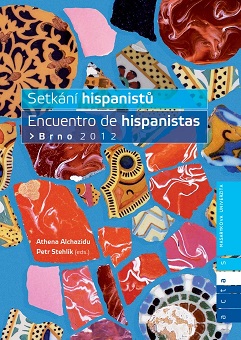
This paper introduces Julio-César Santoyo, the leading Spanish theorist of Translation Studies. It comments he reception of his work in the Czech Republic analyzing critical reviews, articles and academic papers dedicated to his figure. The author’s research on the peninsular Middle Ages is of great importance. Among other topics, he is interested in the occupation of interpreters and the translation metalanguage, available for the Czech readers in the book The Seven Faces of Translation Studies.
More...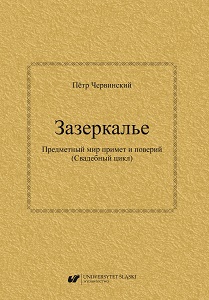
The paper deals with the Russian folk tales and predictions describing the wedding rites and roles of their participants with regard not only to the ceremony itself but also to its meaning. These elements, i.e. roles, action, meaning are reflected via the present and future states that the participants are and will be in. The fiancée is presented as a key character from the point of view of her role and meaning in the stages of the ceremony. The world of objects is described as a special one with regard to the reality and the impact this world has upon a human being and vice versa. The author suggests a number of attitudes towards the potential, virtual typologies connected with the meanings of the paradigmatic units. The units are presented with regard to their structure and position in general semantics.
More...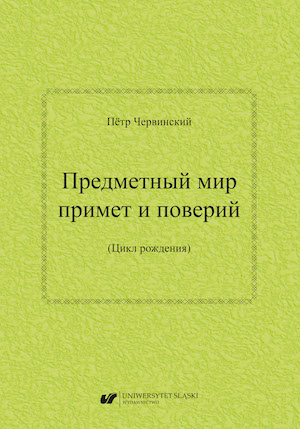
The paper deals with Russian folk tales and legends describing the cycle of birth, actions and roles of their protagonists with regard not only to their present state and condition but also to their future ones. The woman in childbirth is presented as a key character from the point of view of her role and meaning in the stages preceding the birth of a human being. The world of objects is described as a special one with regard to the reality, influencing people and being influenced by them. The author suggests a number of attitudes towards the potential, virtual typologies connected with the meanings of the paradigmatic units. The units are also discussed in terms of their internal structure and position in general semantics.
More...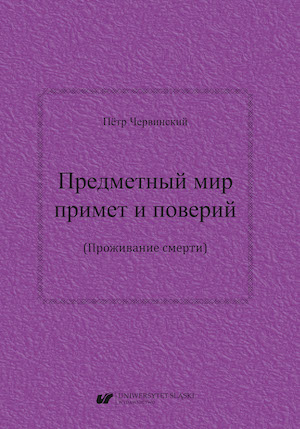
The paper deals with Russian folk tales and legends describing death, dying, actions and roles of their protagonists with regard not only to their present state and condition but also to their future ones. The image of Death as a significant figure has been characterized from the point of view of its various meanings. The world of objects is described as a special one with regard to the reality, influencing people and being influenced by them. The author suggests a number of attitudes towards the potential, virtual typologies connected with the meanings of the paradigmatic units. The units are also discussed in terms of their internal structure and position in general semantics.
More...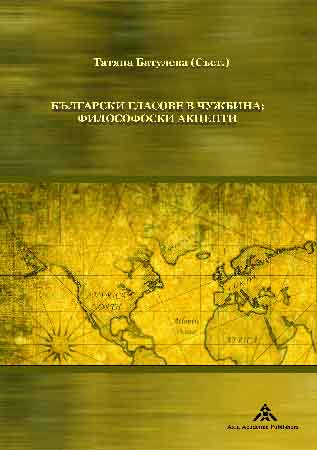
The aim of the volume "Bulgarian Voices Abroad. Philosophical Accents" is to present the main ideas and achievements of authors of Bulgarian origin - philosophers, intellectuals and cultural figures, who worked mainly abroad, such as Dr. Petar Beron, Radoslav Tsanov, Yanko Yanev, Georgi Gachev, Assen Ignatov, Tsvetan Todorov, Julia Kristeva and others. This "outward looking" view also allows us a reverse perspective: turning the look to ourselves becomes an occasion to see ourselves through the eyes of the other, to rethink the specifics of the foreign and the own/native. The point of view of one who is sufficiently "other", distanced from events and paradigms, can give us an unbiased assessment of them. At the same time, he is sufficiently near to "us" for his analyzes to be relevant to "our" reality as well.
More...
The article examines the main topos of the "boundless word", typical of the "emigrant speech" of Peter Uvaliev - this speech that makes him feel "a real Bulgarian", although outside the borders of Bulgaria. Particular attention is paid to his monograph about the art of Turner, whose paintings demonstrate the possibilities of structural analysis. In them he finds a kind of a-topos, i.e., a space without space, but also something more as there is a "structure" in this a-topos that is neither an objective nor a tangible reality.
More...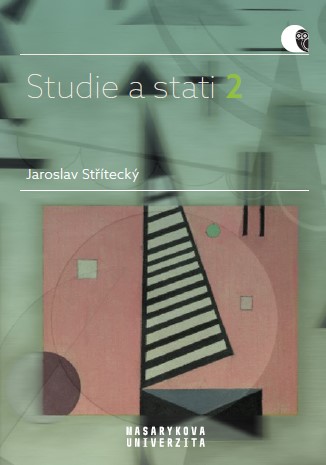
The second volume of Jaroslav Střítecký’s Studies and Essays contains a total of 40 texts. Both extensive studies with notes and loose texts are represented. These include, in particular, the author’s forewords and afterwords accompanying his belles-lettres, journal articles and short glosses. Thematically, they cover all the important disciplines in which Střítecký contributed during his life: philosophy, history, sociology, musicology, aesthetics and literary science.
More...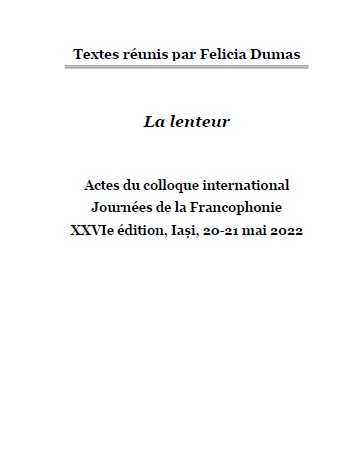
Le présent volume réunit les textes des communications présentées lors du colloque annuel organisé par le Département de Français de la Faculté des Lettres de l’Université « Alexandru Ioan Cuza » de Iași, sous le nom des « Journées de la Francophonie ». En 2022, ce fut la XXVIe édition de cette manifestation scientifique, devenue au fils des années traditionnelle, et attendue avec intérêt par les francophones de la région, du pays et même de nombreuses universités étrangères, partenaires dans différents programmes et échanges internationaux.
More...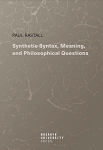
Syntax is seen as the synthetic construction of complex linguistic signs bringing together different areas of experience through the sign function, and is integrated with semantics to account for communicational reality and the nature of meaning. The disposing factors at the interface between experience and verbal means in the application of signs are investigated with detailed examples. The analysis of verbal constructs provides linguistic perspectives on a range of philosophical issues, and illuminates the role of language in what it is to be human. The work consists of thematically related papers, and takes a broadly Saussurean/functionalist “European” approach.
More...